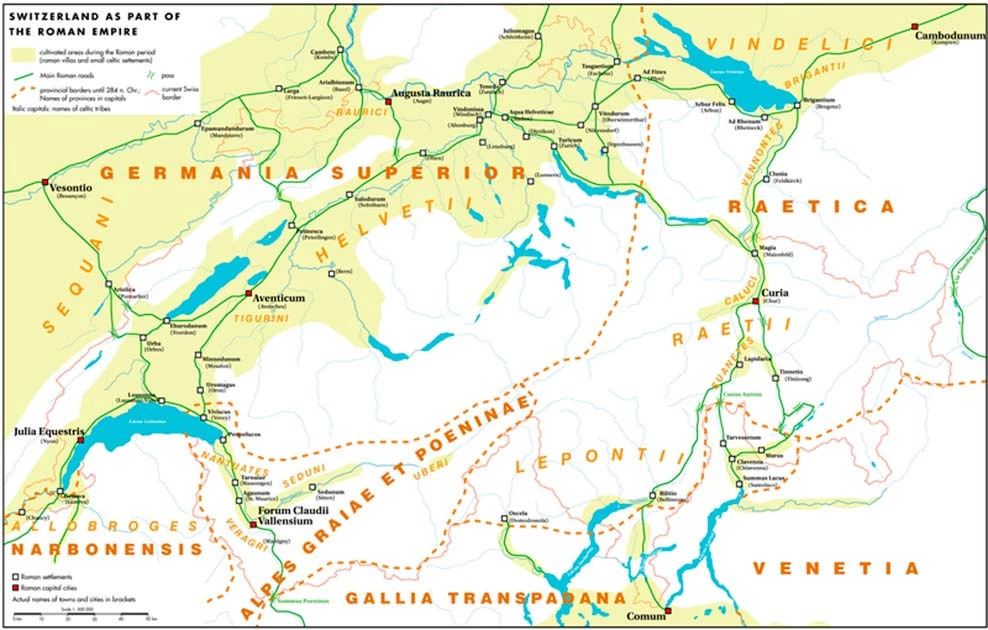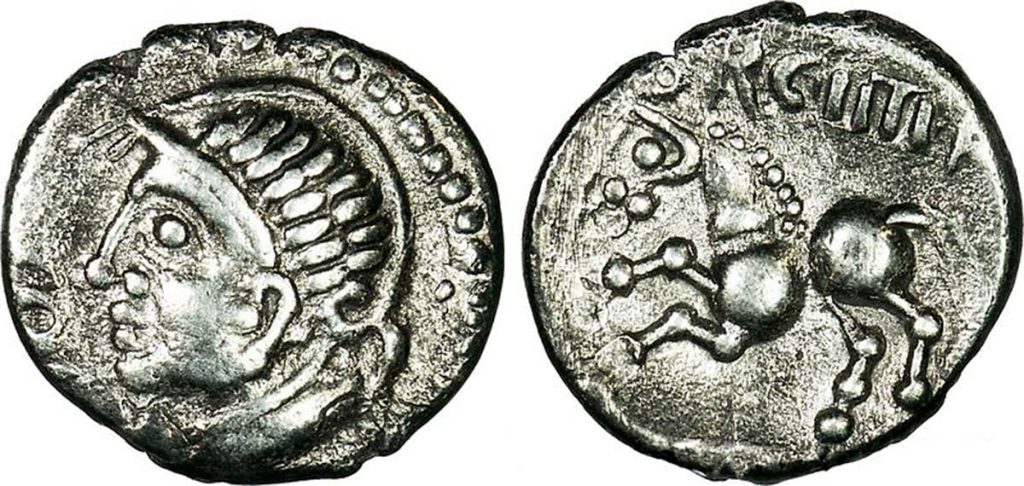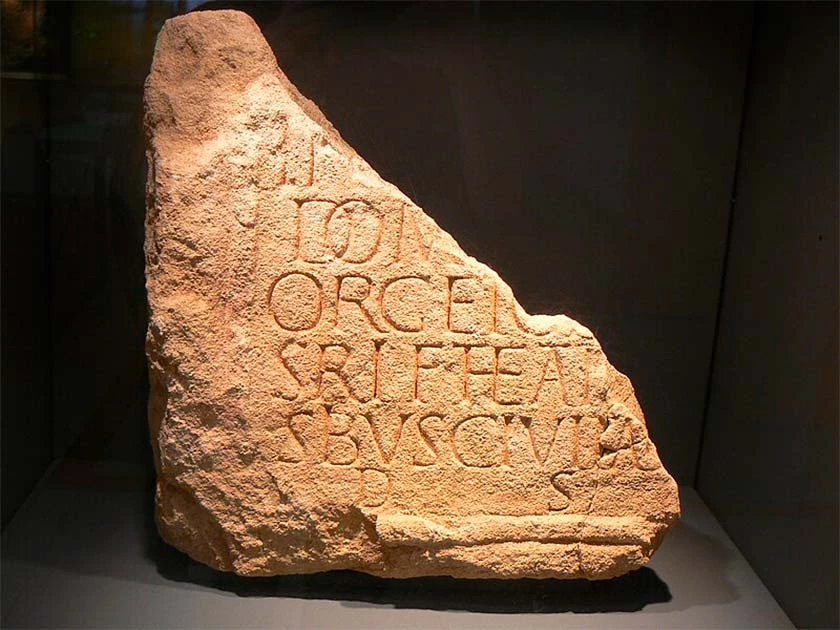History, they say, is written by the victors. This is a common concept, and the meaning is clear: events are recorded by those who remain, and we can expect an element of bias towards those victorious, and similarly damning records of their defeated foes.
But there are further meanings hidden in this simple phrase. History is a game of chance, and often it is enough to be in the right place at the right time. Would Caesar, Cleopatra and Mark Antony had been as famous or well remembered had they not lived all at the same time? Their fame comes from their intertwined lives, as much as from any individual deed.
This creates a secondary history under the documented surface, a history of also-rans. This means many figures who were famous and influential at the time fall through the cracks of history, forgotten by the masses today.
One such character is Orgetorix, a Celt from over 2,000 years ago whose audacious ambition led him on a path to seize control of Gaul, a land rich in culture and untold treasures. The tale of Orgetorix is a fascinating one, that of a charismatic leader whose aspirations forever changed the course of history and left behind a cloud of uncertainty that continues to captivate historians to this day.
So, who was this other Caesar, this Vercingetorix in the shadows?
Who was Orgetorix?
Orgetorix was a prominent Celt (a group of Indo-European peoples who inhabited a vast area of Europe) who lived during the late 2nd and early 1st century BC in what is now Switzerland. He was born into a noble family of the Helvetii, one of the most powerful and influential Celtic tribes of ancient Gaul (which encompassed modern-day Switzerland and parts of France).

Records show that Orgetorix was known for both his charisma and cunning intellect. His life coincided with a turbulent era in Europe, where regional tribes vied for supremacy, and Roman influence was gradually encroaching upon their lands, which made these traits invaluable among the Helvetii.
A skilled and persuasive orator (and also incredibly wealthy), Orgetorix quickly rose to prominence as a leader within his Helvetii community. Gifted with the ability to rally his people, he envisioned a grand ambition: uniting the disparate Celtic tribes of Gaul into a formidable confederation under his rule.
As a result, he sought to expand his influence beyond his tribe’s borders, making himself an ambassador on behalf of his people to the other Gallic tribes. He set about approaching their leaders to forge alliances and secure his vision of a united Gaul.
- Alesia! The Lost Battle and the Roman Conquest of Gaul
- Boudica: Legendary Warrior Queen who Defied an Empire
Orgetorix’s ambitions drew both admirers and detractors to his cause. Ultimately it proved that his detractors were right, the man couldn’t be trusted. His takeover plan for Gaul included a conspiracy that if everything went to plan, would end with Orgetorix on a throne of his own making.
Orgetorix’s grand ambition to seize control of Gaul was driven by a multitude of factors that converged to create a perfect storm of opportunity. As a charismatic and ambitious leader, he yearned for power, wealth, and fame, but his motivations extended beyond personal gain.
Firstly, Gaul was a land of immense wealth and resources, comprising fertile farmlands, abundant mineral deposits, and thriving trade routes. Conquering Gaul would provide vast economic advantages and secure a prosperous future for Orgetorix and his tribe.
Secondly, the political landscape of Gaul at that time presented a unique opening for Orgetorix’s audacious plan. Many tribes existed as independent entities, often squabbling amongst themselves, making the prospect of unification under a single leader an appealing prospect.
Moreover, the growing influence of the expanding Roman Republic loomed over the horizon, which compelled some Celtic leaders to seek consolidation for a stronger defense against potential Roman encroachment. If anyone was likely to unite the squabbling Gauls, it seemed it would be the Romans, and by force.
Lastly, Orgetorix’s charm and diplomacy allowed him to form alliances and garner support from influential figures within neighboring tribes. He utilized his persuasive oratory skills to build a coalition, promising shared prosperity and protection to those who joined his cause.
In this crucible of ambition, Orgetorix saw an opportunity to shape the destiny of Gaul, setting in motion a chain of events that would ultimately lead to tragedy.
The Conspiracy
The thing is, Orgetorix never told his people he wanted to take over the whole of Gaul. He just told them he thought they should move.

In 61 BC Orgetorix managed to convince the Helvetians to migrate from their own territory to southwestern Gaul (France today). This was a massive undertaking that involved two years of sowing crops and buying pack animals in preparation so that the migration could begin in the third year.
Not everyone was convinced about Orgetorix’s motives, however. While it was true that migrating to Gaul offered his people countless opportunities, the truth is Orgetorix was after something else. Absolute control.
- William Tell: Is there a Real Man Behind the Myth?
- The Vanished Legion: What Happened to the Roman IXth?
Orgetorix didn’t just plan on migrating to Gaul, he planned on invading it and taking the entire land for himself. He had made a secret agreement with Dumnorix of the Aeudui and Casticus of the Sequani (two other prominent Gallic tribes) to combine their armies and rule over Gaul together in their own version of the Roman triumvirate. He’d just neglected to tell the rest of the Helvetians what he was planning.
Unfortunately for him, despite Orgetorix’s calculated efforts, his grand vision of a united Gaul would never come to fruition. As his influence grew, suspicions arose among his fellow Helvetii about his true intentions. Many began to suspect that Orgetorix was looking to establish himself as a tyrant, undermining the independence of other tribes and imposing his will upon them.
Orgetorix’s rivals eventually discovered his conspiracy, and he was called to a hearing before the government of the Helvetii where he was told he was to be put on trial. If he was found guilty of his crimes his sentence would be death by burning.
Hoping to dissuade a guilty verdict Orgetorix turned up to his trial with a large personal retinue and an army reported to have been around 10,000 strong. He is said to have bolstered these numbers even further by inviting his many clients, followers, and dependents. What happened next is a little fuzzy.
It would seem that Orgetorix was most likely released without being tried, the council being eager to avoid bloodshed. However, Orgetorix died soon afterward. Many Helvetians believed he committed suicide, knowing that his conspiracy was over and that eventually his government would see him dead. Contemporary Roman sources merely stated he died; no explanation given.
A Plan in Motion
Orgetorix’s death didn’t stop the Helvetian’s migration though, they continued their attempt to migrate without him. Unfortunately for them, they were defeated in 58 BC by the armies of Julius Caesar and were sent back home. The incident is remembered as the beginning of the Gallic War and Caesar’s eventual domination over Gaul.

Perhaps if Orgetorix’s conspiracy had succeeded he would have had the combined military might to face Caesar’s legions toe to toe, forever changing history. Or maybe it would have just led to even more, even bloodier battles during the Galic War. We’ll never know.
The tale of Orgetorix, the charismatic Celt who aspired to unite Gaul, remains an alluring enigma of ancient history. His relentless ambition, diplomatic prowess, and mysterious end have left an indelible mark on the annals of time. His death, however, will likely remain a mystery.
Top Image: Orgetorix was every bit as ambitious as Caesar, and if his quest to unite Gaul had been successful the world might have been very different. Source: JoelMasson / Adobe Stock